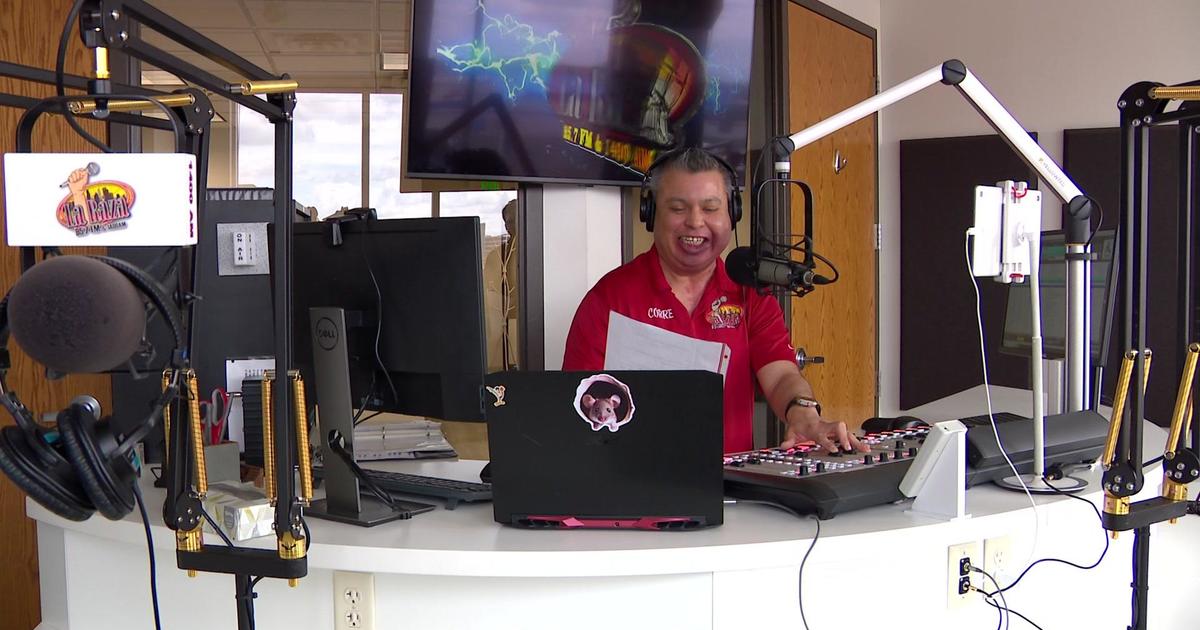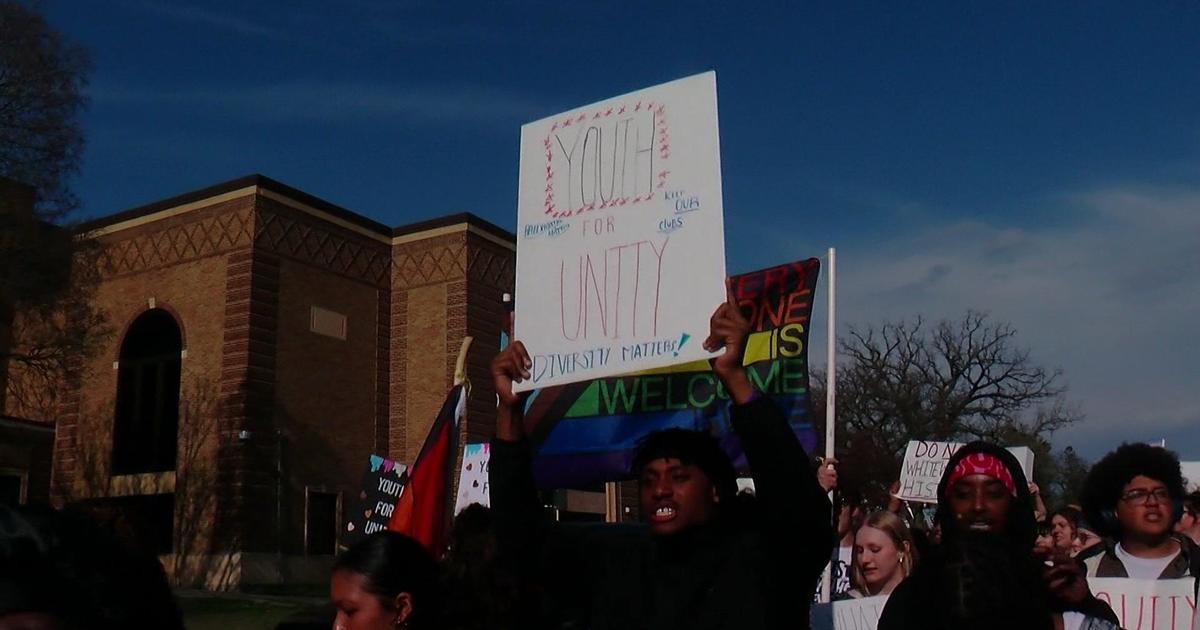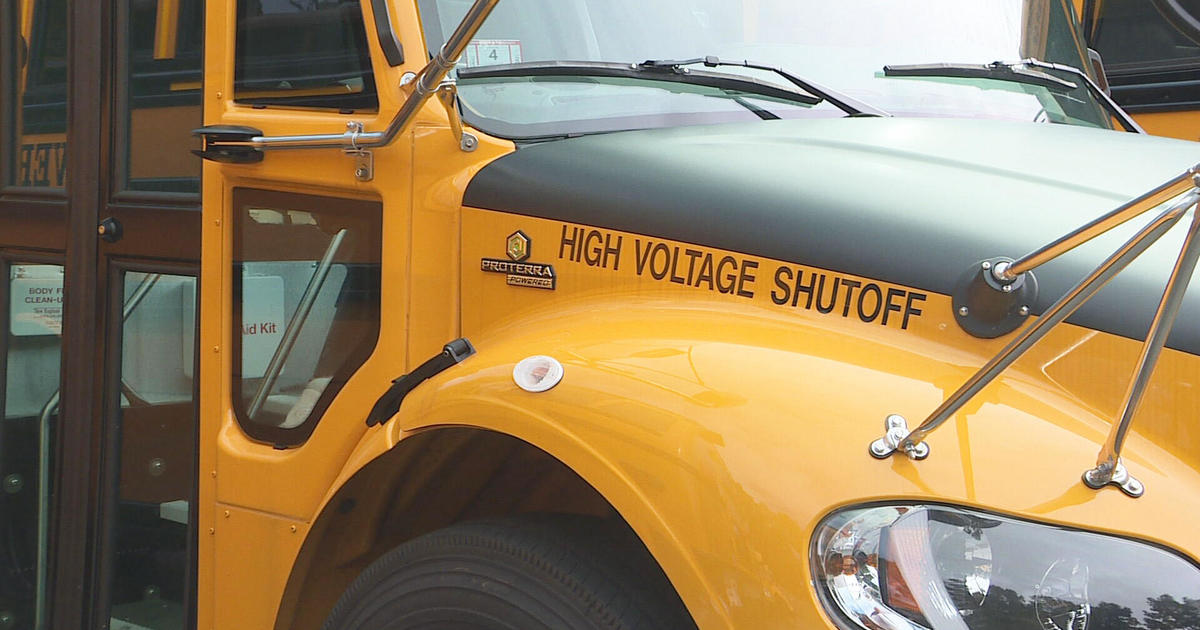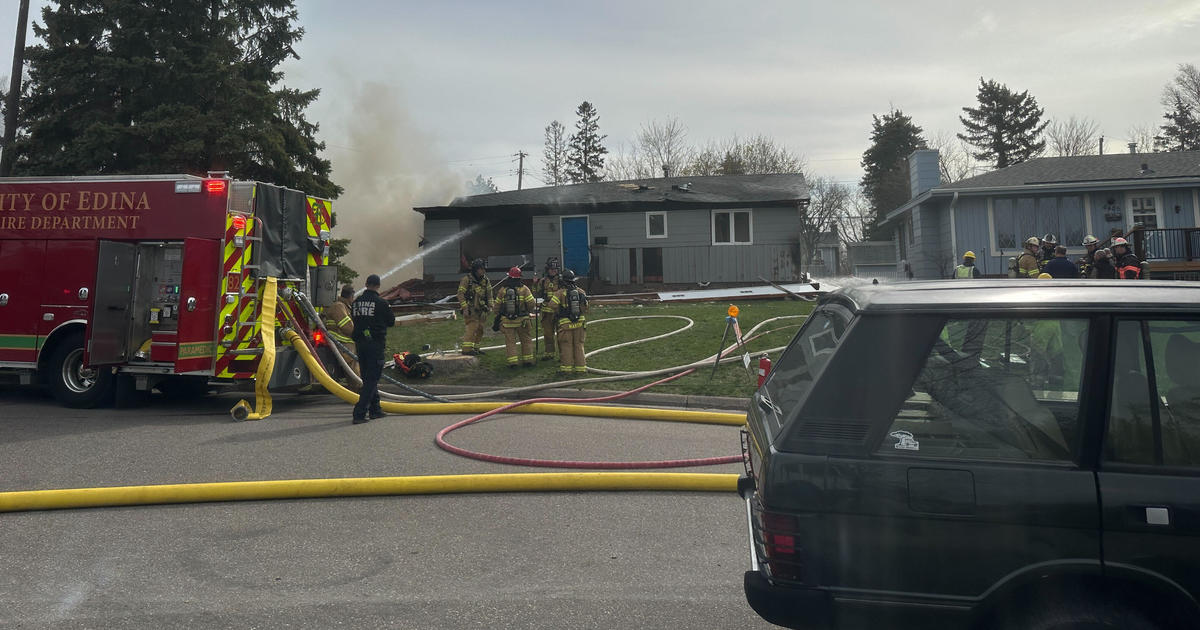For-Profit Colleges Under Fire: 'They're Selling A Dream'
The business practices at some for-profit schools are under the microscope in Minnesota and across the country. The Department of Education says there are pricey post-secondary schools that leave students with more debt than public colleges and less of a chance of graduating.
For the last few months, one well-known for-profit college in the state has been at the center of the controversy in court.
In partnership with MinnPost, WCCO explains what some students say goes on at some of these schools that we're all paying for and why the state is making changes.
-------
'It Means They're For-Profit, Not For You'
Public, vocational, community and private. With so many labels at the college level, your education starts long before you set foot in any classroom. But, for three Twin Cities working mothers, there is one label they all wish they would have taken a harder look at.
"It means they're for profit, not for you," Carisa Halter said.
Halter and Von Kemo were students at Globe University and its sister school the Minnesota School of Business. Kelly Charpentier-Berg was enrolled in online classes at Kaplan University.
"They called me at least twice a day for three weeks until I signed up," Charpentier-Berg said.
They all say the for-profit schools weren't what they signed up for.
"They told me they had a high graduation rate, a high placement rate," Halter said.
After spending three quarters and $8,000 at Globe, Halter says she couldn't find any graduates working in her field as a medical administrative assistant.
In a statement, Globe said that 40 people graduated from that program the year Halter was enrolled and placement data shows 78 percent of them are employed in the field.
Von Kemo says Globe told her she'd be making $60,000 as a catheterization lab technician. That was until Globe cancelled the program because, according to the school, it couldn't provide the practical training students needed. Kemo then spent three years in Globe's nursing program only to max out on federal loans, unable to afford to graduate.
When these women felt the programs weren't working for them, they looked at other schools, only to learn they couldn't transfer any of their credits.
"I started all over from scratch," Charpentier-Berg said.
Minnesota Attorney General Steps In
Minnesota Attorney General Lori Swanson is in the middle of her own investigation into several for-profit colleges. She's working to find out if they've committed consumer fraud.
"I think there are lots of things the state could do," Swanson said.
Swanson won't say which schools she's looking at but, across the board, she'd like for-profits to be more upfront about what they can and can't do and reel in their recruiting tactics.
"That can result in practices that are really more akin to how you might sell a used car," Swanson said, "as opposed to: 'Is this education in the best interest of this particular student?'"
More than 30,000 Minnesota undergraduates are enrolled at more than 100 of these schools in the state operated by private, profit-seeking businesses. For-profits will get $15.7 million from taxpayers this school year to cover financial aid.
'They're Selling A Dream, Not An Education'
Heidi Weber worked for a year as dean of Globe's medical assistant program.
"They're selling a dream, not an education. And that's something they'd say quite often," Weber said.
She says her complaints about the school falsifying job placement numbers, inflating starting salaries, and purposely not telling students how a criminal record might keep them from getting hired got her fired.
"These students would already be $30,000-$40,000 in debt before they actually found out the truth," Weber said.
Globe says it points out in its student handbook that students in some field have to go through a background check. Students must sign off on reading the document before enrolling. Globe also added that it refrains from giving a background check until the last part of the program because there is an average of 22 months between the time they enroll and the time they would enter the field.
Weber sued the school and a Washington County jury awarded her $395,000 this summer.
"I feel vindicated," Weber said.
'It's Basically A Worthless Piece Of Paper'
Now, five current and former Globe students are suing with similar complaints, accusing the school of keeping the student loans and scholarships while the students are left deep in debt, without the education or professional opportunities Globe promised.
Numbers from the Minnesota Office of Higher Education show 96 percent of Globe graduates took out student loans and graduated $44,824 in debt, and 17.5 percent missed at least one loan payment. In comparison, 67 percent of University of Minnesota graduates have loans totaling nearly $26,727, while just 3.8 percent defaulted.
"It's very troubling," said Scott Carlson, who is representing both Weber and the students in their lawsuits.
He says his firm has heard from at least 100 others who say their diplomas from Globe won't get them anywhere.
"It's basically a worthless piece of paper," Carlson said.
Globe University Responds
"For the tens of thousands of students that we've graduated, there can't be a more disparaging remark made," Globe's Chief Operating Officer Jeanne Herrmann said.
Herrmann wanted to sit down with WCCO, admitting the school needs to do a better job of sharing its story. She doesn't think the legal actions of a few should speak what she says is working.
"It can be disheartening to think that a few or a handful can have this sort of impact on what's been going on with our schools," Herrmann said.
More than 11,000 students are enrolled at Globe's 20 campuses in five states. Herrmann says the school's mission is to get students career-ready and that her staff is up front that credits won't usually transfer. She says in the catalog and the disclosures that students sign it says specifically credits are unlikely to transfer.
As for why students take out more money to be here, she says Globe, like most for-profits, serves non-traditional students who are usually supporting themselves and often their families at the same time.
"We will always tell students the truth. We will always give them the best information so they can make the best choice for themselves," Herrmann said.
The Other Schools
Globe is not one of the 30 for-profit colleges a U.S. Senate Committee spent two years investigating, but three Minnesota schools are mentioned: Rasmussen, Capella, and Walden. The report calls them out for poor graduation rates and spending more money on marketing than on classroom instruction. The three Minnesota schools mentioned have made changes this study all were critical of its findings.
Minnesota Higher Education Commissioner Larry Pogemiller believes there is room for improvement.
"I think we're just not where we need to be," Pogemiller said.
The office licenses for-profit colleges. The Minnesota Office of Higher Education received 30 formal complaints last year about the schools, nearly the same as public colleges. In its own study, the office found students at for-profits are as likely to be employed one year after graduation as students are from public two-year schools. But, wanting to be more proactive, it plans to hire someone to be a student advocate and it will send out secret shoppers to see what's really going on.
"If there is a pattern of deception and fraud we absolutely should figure out if that's going on and do something about it," Pogemiller said.
'I Feel Taken Advantage Of And Lied To'
Surrounded by each other's stories, these three women are positive the pattern there.
Halter and Charpentier-Berg are enrolled now in community colleges while Von Kemo works the same part-time job she had before her time at Globe.
"I feel taken advantage of and lied to," Halter said.
Their dream of starting a career the way they thought they would is now clouded with questions.
"I never would have thought anybody could do this legally but they have and they are," Kemo said.
The online school that Kelly attended -- Kaplan University -- has also been sued by students and former staff members. About Kelly's claims, a spokesperson told WCCO it's up the institution a student transfers into whether or not credits will be accepted.
Globe said it will appeal Weber's case. Another former dean is also suing Globe. Her case will go to trial in February.
You can read more about this story tonight and tomorrow on MinnPost in a two-part series.
The Minnesota Attorney General's Office has a link for you to find out how to validate a school's claims here.
-------
Do Your Homework
The choice of a college or trade school is one of life's first important financial decisions. The Minnesota Attorney General, the Better Business Bureau and the Minnesota Office of Higher Education urge prospective students to:
• Shop around, comparing prices. A recent investigation by the Government Accountability Office alleged price gouging at some for-profit schools. One school charged $14,000 for a certification in massage therapy while a similar certification at a local public college would have cost $520. The site http://www.iseek.org shows which Minnesota colleges offer programs.
• Don't settle for recruiters' claims about accreditation. Do your own research to determine whether the accreditation fits your career goals. If you're preparing for a job in nursing, for example, make sure the program satisfies the specialized accrediting requirements.
• Determine in advance whether your credits will transfer to other colleges. These websites help determine what credits will transfer: http://www.dars.mntransfer.org/ and https://www.transfer.org/uselect/login.htm.
• Watch out for promises to award credits solely on the basis of your statements of previous work or life experiences. Legitimate credits based on "lifetime learning" will require you to document specific knowledge that is equivalent to classroom work.
• Investigate licensing requirements for your target career. Go to the licensing board and ask whether a particular training program will qualify you to seek that license. Ask employers, too, whether they would hire someone with this degree.
• Beware high-pressure recruiting tactics. A reputable school will allow time for you to weigh options, read the fine print and talk to a financial aid advisor. Get recruiters' promises in writing. The Minnesota Office of Higher Education offers several links that can help you validate a school's claims.
• Beware a degree that seems easy to obtain. Diploma mills pose as online schools and often promise to give cheap and easy degrees. Such diplomas won't be recognized by the military, employers or other colleges.
• Do not lie on financial aid forms. The GAO report found that some recruiters encouraged students to lie on financial aid applications in order to get more money. If you get caught doing that, not only will you have to pay the government back the money you borrowed, you could be fined or criminally prosecuted.
• Beware exaggerations of potential income or job guarantees. Landing a job rarely is a sure thing.



